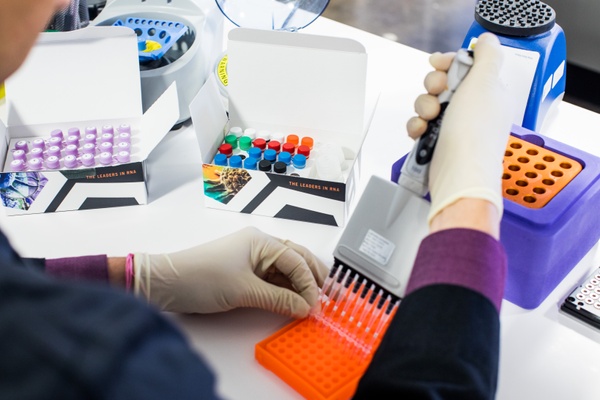Cofactor Genomics, a Predictive Immune Modeling company, today presented initial results from the PREDAPT (Predicting Immunotherapy Efficacy From Analysis of Pre-treatment Tumor Biopsies) multicenter clinical trial at this week’s Advances in Genome Biology and Technology Precision Health Meeting. Data show that Cofactor's OncoPrism test using Predictive Immune Modeling was nearly twice as accurate as PD-L1 assays in determining patients that will benefit from immunotherapies such as Keytruda (pembrolizumab).
The PREDAPT clinical trial is studying whether a more comprehensive and quantitative profiling of the tumor micro-environment using the OncoPrism assay will lead to more accurate prediction of responders to immune checkpoint inhibitors across a variety of cancers, and thus provide better tools for informing and prioritizing treatment paths. The PREDAPT study currently includes 20 healthcare systems from across the nation and will ultimately study a total of 11 solid tumor cancers, including head and neck squamous cell carcinoma, non-small cell lung cancer, and melanoma.
In clinical studies where OncoPrism was tuned to have the same sensitivity as PD-L1, Cofactor’s test reached 75% accuracy in predicting responders to immune checkpoint inhibitors, when compared to 42% accuracy for PD-L1. These interim results from nine healthcare systems show at similar sensitivity, OncoPrism has greater specificity and continues to be superior to single analyte approaches like PD-L1. The staggering improvement in prediction is based on OncoPrism’s Predictive Immune Modeling platform of multidimensional RNA models that capture health-related state, compounded with machine learning to better understand disease and predict therapy response.
“This readout from a subset of our partnered healthcare systems across the U.S. suggests our multidimensional biomarker approach and resulting diagnostic will be broadly applicable across the patient population,” said Jarret Glasscock, CEO of Cofactor Genomics, “The study results provide a strong framework and understanding for the other important cancers we will be studying in our broader PREDAPT work, including non-small cell lung cancer (NSCLC).”



